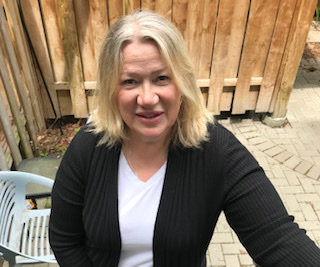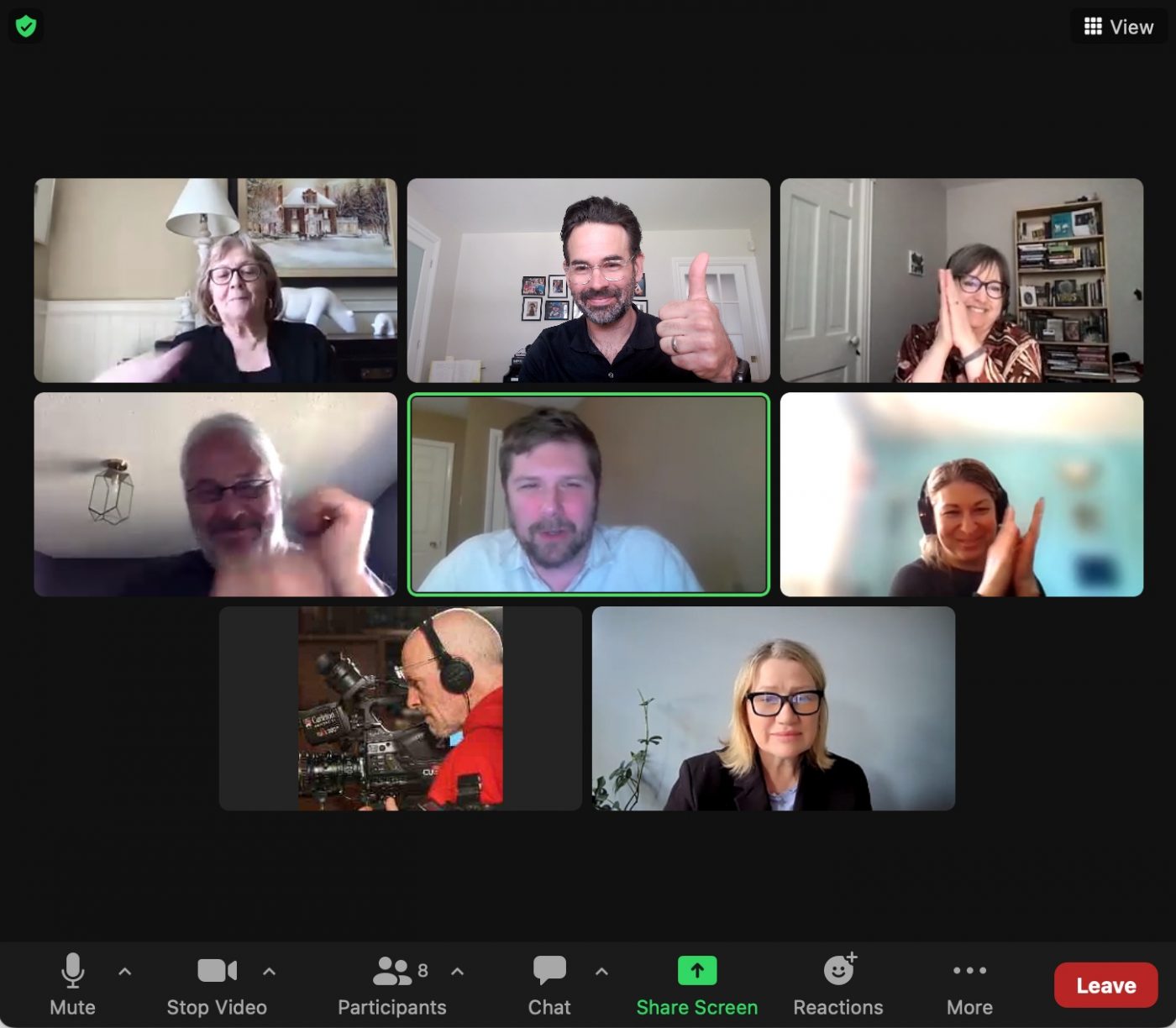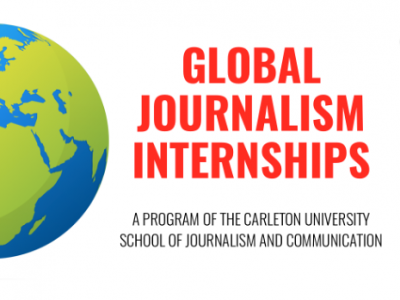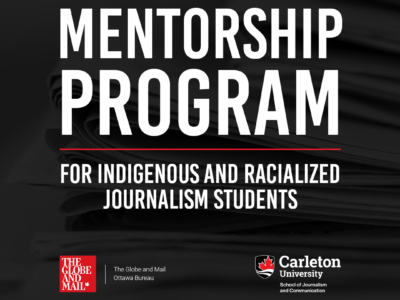The School of Journalism and Communication congratulates Dr. Kathy Dobson on the successful defence of her PhD dissertation, Living in Algorithmic Governance: A Study in the Digital Governance of Social Assistance in Ontario.
Dobson’s research examines the Ontario government’s Social Assistance Management System (SAMS), a type of algorithmically powered software that’s used by social assistance agencies to categorize, sort, and manage the individuals who use social assistance. In particular, she explores how it feels for those individuals who depend on this system to pay for rent, food, and other life essentials.
SAMS was introduced by the Ontario Ministry of Community and Social Services in 2014 to modernize assistance for those who work within and depend upon Ontario Works (OW) and the Ontario Disability Support Program (ODSP). The platform on which SAMS is built was developed by Cúram Software, an Irish company eventually purchased by IBM in 2011.
As Dobson’s study notes, SAMS was ostensibly intended to provide more comprehensive and sophisticated case management support and functionality. Yet, she shows how it also accomplished other things as well. On the one hand, it expanded the potential for more automated forms of social control of Ontario citizens who use these programs; yet at the same time, it also created unexpected opportunities for those individuals to resist efforts at administering their lives.

“My research investigates the intersections of surveillance, governance, social justice and affect,” says Dobson. “How does digital technology, in this case software built on algorithmic architecture, govern people on social assistance? More importantly, for those who are navigating this system and who need access to social assistance, how does it feel to be governed at a distance through digital media?”
Many popular and academic accounts of surveillance treat citizens who live in poverty as passive targets of social control. Dobson says this is largely because those individuals are “rarely afforded an opportunity to speak” directly to their experiences. Based on interviews with social assistance users and their case workers, her research “highlights the agency users have” in navigating a system that is both oppressive and opportunistic.
“Governance doesn’t simply ‘happen’ to people,” Dobson explains. “As my study demonstrates, people living in poverty do have agency, and they perform it in a multitude of ways, through their resourcefulness and willingness to push back against a system that often seems unfair and stacked against them.”
Dobson’s dissertation was supervised by Professor Sheryl Hamilton, who lauded its contribution to social justice scholarship.
“Kathy’s dissertation shines a rare light on the voices of those individuals actually living and working with the Social Assistance Management System in Ontario,” she says. “We see that while the system eliminates some of the possible negative human contact between case worker and social assistance recipient, it also is an inflexible system that does not have as its primary goal to help some of Ontario’s most vulnerable citizens.”
Dobson’s research came from a place of personal experience. As a previous recipient of social assistance, as a social worker and a journalist who has reported on social welfare issues, the research was shaped in important ways by her own biography. It was this combination of experiences, both professional and personal, that opened compelling analytical and storytelling avenues.
As Hamilton explains, “Kathy’s scholarship offered a window into the life stories of the folks who are seeking social assistance and those trying to help them, despite the algorithmic logics that now dominate almost all forms of social governance. Some of these stories made me laugh out loud, while others brought tears to my eyes, and still others fueled anger.”

Dobson credits her supervisor and committee members with helping to shape her into a better scholar, researcher, and academic writer. “My dissertation would not be the project it is today had it not been for my supervisor who constantly challenged me to do better, and my committee members whose support and expertise helped improve earlier drafts of the study.” Dobson’s committee members were Professors Irena Knezevic and Josh Greenberg.
Though Dobson is closing an important chapter in her journey as a scholar, she continues to be engaged as a member of the Carleton community, serving as interim Co-Director of the Alternative Global Network (ALiGN) Media Lab in the School of Journalism and Communication. She is also currently completing the final draft of her third book, The History of Whistleblowing, which is under contract with Véhicule Press in Montreal, and is working with a producer on a screenplay based on her first book, With a Closed Fist: Growing Up In Canada’s Toughest Neighbourhood.
Wednesday, June 1, 2022 in Communication News, News
Share: Twitter, Facebook



